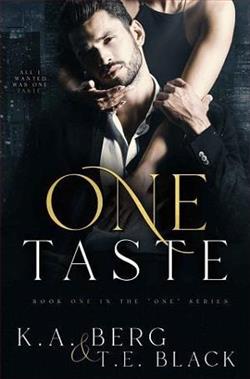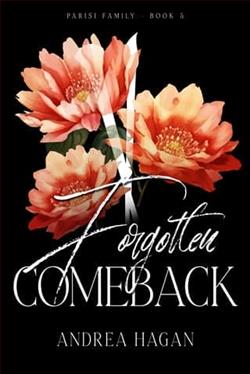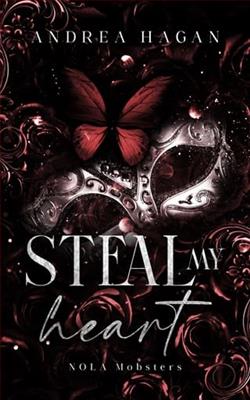Page 16 of Clashing Moon
An image of Norma, with her frog-like face and permanent sneer, played before my eyes. “I inherited her when I bought the practice. Mama said it would be wrong to let her go. But she’s the worst. The other day, I found her eating the leftovers that I’d brought to work to enjoy. A small thing, granted, but seriously, who eats someone else’s lunch?”
“That’s terrible. Lunches brought from home should be sacred.”
“Right? And she had the nerve to deny it was mine. She said she’d brought it from home that very morning. I was so flabbergasted at her gall that I just walked away. I had to go down to the diner to have lunch, fuming the whole way and thinking very unkind thoughts about Norma.”
I don’t know if was the vodka or if she found me funny, but she let out a very feminine giggle. Quite adorable, actually.
“What about your staff?” I asked. “Do you have a good team?”
“I inherited a few, too, but so far, they’ve all been great. My predecessor was a great manager. They’re all independent and very supportive of me. I wasn’t sure they would be, given their loyalty to their first boss.”
“Norma is not what you call supportive. Every time I ask her to do something, she sniffs and mumbles under her breath that the former doctor would never have done it that way.”
“That’s annoying. You really should fire her.”
“When we get out of here, maybe I will.” I raised an eyebrow. “Although I hate to get on Mama’s bad side. No one can make a person feel worse about a selfish act than my mother.”
“Your mother’s a great woman.”
The wistfulness in her voice gave me pause. “She is.” Since we were talking about such personal subjects, I decided to ask about her mother. “How old were you when your parents divorced? Three?”
Her face whitened, and she pinched her bottom lip between her thumb and finger before answering. “That’s right. She left when I was three. I barely remember her.”
“Have you seen her since?”
“No. I have no idea where she is. My father says she never wanted to be a mother. You may not remember my grandmother, but she came to live with us after my mom left. She helped raise me. But she died when I was in sixth grade. Sudden heart attack.”
Sixth grade. That was about the time I’d started competing with Arabella for the top of our class. I’d had no idea she was going through all of that. “I didn’t know. Were you close with her?”
“She was like my dad. Quiet. Kept to herself. She wasn’t as mean as my dad, but not by much.”
The hurt in her voice saddened me. “I had no idea. About your home life, that is.”
“How could you? We weren’t friends.”
True enough.
“After she died, it was just the two of us. I pretty much took over the household chores and cooking—all the things my grandmother had done. My father kept me on a tight leash. But he never interfered with my studying. That was the one thing he was supportive of.”
“Were you trying to please him? You know, by being such a good student.”
“No. I was trying to please myself. All I wanted was to get out of here and start my own life. I knew from the time I was in high school I wanted to be a vet. Animals are so often better than people.”
“True enough.”
A crash outside the cabin startled both of us. Heart thudding, I ran to the window, peering out into the white world. A tree branch had broken off a tall fir not far from the cabin. “Snow must have gotten too heavy,” I said, feeling Arabella standing right behind me.
“I really hope one doesn’t crash into the roof.”
“Me too. But think of it this way—this cabin’s been here for a long time. It’s lasted through a lot of winters.”
I turned away from the window in time to see her shiver.
“You cold?” I asked.
“A little.”
“I’ll put another in the log in the fire. It’s about time to heat something up for dinner anyway.”















